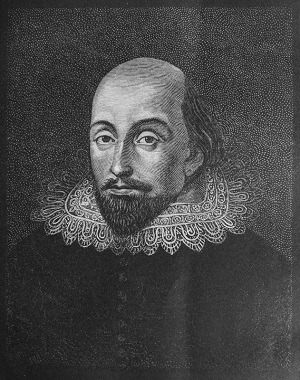

Shakespeare was an English actor, playwright, as well as a poet who lived from April 26, 1564, to April 23, 1616. He is broadly accepted as the most influential English-language composer and also the finest playwright personality in the history of humanity. He is repeatedly alluded to as the “Bard of Avon” and England's national poet (or simply “the Bard”). A huge total of 154 sonnets, 39 plays, three lengthy narrative poems, and a few other verses. His few works ownership is contested, making up his surviving works, including collaborations. His dramas are presented much more extensively than those by any other writer since they have been adapted into every prominent living language. Scholars continue to investigate and analyse his works because he is still acknowledged to be the most influential author in the English language.
He is broadly accepted as the most influential English-language composer and also the finest playwright personality in the history of humanity. He is repeatedly alluded to as the “Bard of Avon” and England's national poet (or simply “the Bard”). A huge total of 154 sonnets, 39 plays, three lengthy narrative poems, and a few other verses. His few works ownership is contested, making up his surviving works, including collaborations. His dramas are presented much more extensively than those by any other writer since they have been adapted into every prominent living language. Scholars continue to investigate and analyse his works because he is still acknowledged to be the most influential author in the English language.
Shakespeare was the male child of Mary Arden, a wealthy landowner family, and John Shakespeare, who was an alderman and renowned glover (glove-maker) of Snitterfield in Warwickshire. Despite the lack of attendance records from the time, most biographers concur that Shakespeare most likely attended the King's New School in Stratford, a public school established in 1553. Shakespeare got married to Anne Hathaway when he was merely 18 and his wife was 26. Shakespeare is first mentioned in the London literary community in 1592. Uncertainty surrounds the beginning of his theatrical career, although from approximately 1594 onward he played a significant role in Lord Chamberlain's company of actors. They had Shakespeare, the greatest writer, Richard Burbage, and the best theatre, all of which were completed by the fall of 1599. It is hardly surprising that the business did well. Shakespeare created himself as a full-time profession in his theatre, participating in a collaborative business and being deeply invested in the commercial success of the plays he created.
Titus Andronicus was the earliest complete tragedy of Shakespeare. In “The Two Gentlemen of Verona”, one of the two young heroines, Julia, develops a male identity to chase her lover. Shakespeare's romantic comedies are “Twelfth Night”, “As You Like It”, and “The Merchant of Venice”. His play, “The Comedy of Errors”, is the most traditionally oriented early comedy. Shakespeare first utilises the numerous plot line method in “The Taming of the Shrew” (c. 1590–94), a romantic comedy. Some poems of Shakespeare are “The Rape of Lucrece”, and “Venus and Adonis”. “The Merchant of Venice” (about 1596–1577) balances a story of passionate wooing with one that approaches tragedy. His other famous plays are “As You Like It”, “Twelfth Night”, and “The Merry Wives of Windsor”.

Wax figure of world-famous British writer William Shakespeare at Madame Tussauds museum. London,UK
Shakespeare is accountable for the creation, popularisation, reinvention, and preservation of hundreds of everyday terms in the English language. He merged words to form new ones, turned verbs into adjectives, turned nouns into verbs, and added prefixes and suffixes to make the terms more interesting.
Shakespeare has enormous works which include a total of 36 plays published in the initial Folio of 1623 and are classified as comedies, histories, and tragedies following their manuscript categorisation. Shakespeare contributed significantly to two plays that were exempted from the 1st Folio: “The Two Noble Kinsmen” and “Pericles”, “Prince of Tyre”, which are still recognised as classical works. No Shakespearean poetry was found in the First Folio. Shakespeare would employ the concept of a young lady masked as a male in following romantic comedies such as “Merchant of Venice”, ‘As You Like It”, and “Twelfth Night”. As is typical of Shakespeare, the storyline was adapted from a literary origin, in this instance a long Spanish romantic prose, “the Diana of Jorge de Montemayor”.
Shakespeare was not recognised during his whole lifetime, although he did get a great deal of admiration. In 1598, the clergyman and writer Francis Meres marked him as "the most outstanding” in both tragic and comic writing among a group of English writers. In the 1st Folio, Ben Jonson labelled Shakespeare the as the “Soul of the age”, “the applause, delight”, and “the wonder of our stage”, while he had pointed him elsewhere that “Shakespeare required art” i.e. he needs more skills. Samuel Taylor Coleridge, a writer and literature critic, appreciated Shakespeare throughout the Romantic era. August Wilhelm Schlegel, a critic author, interpreted Shakespeare's plays in the style of German Romanticism.
Shakespeare's plays were frequently claimed to be his creations, both after his death and by a significant portion of his successors. A number of these contemporaries, like the cantankerous Ben Jonson who had intimate ties to the play, "anti-Stratfordians," as people who challenge Shakespeare's genuine identity are known, must conjure up some sort of covert conspiracy with nebulous goals. He passed away in 1616.
William Shakespeare was an excellent English author and playwright. He is frequently thought to be the greatest creator of literature. He was reportedly a budding dramatist in London by 1594 and a member of a prestigious theatre, the Lord Chamberlain's Men. His first plays, include the comedies “Love's Labour's Lost”, “The Taming of the Shrew”, “The Comedy of Errors”, and “A Midsummer Night's Dream”. He created the classic plays Hamlet, Othello, and King Lear. He created many new words in English literature. Before 1610, Shakespeare took retirement to Stratford, where he continued to lead a pleasant rural life until his death.
Q1. What are Shakespeare's three key themes?
Ans. Every drama has common patterns that are simple to identify. Conflict, change, organisation and disorder, and appearance and truth are the four that stick out the most.
Q2. Why is Shakespeare such a unique author?
Ans. His plays convey to us the greatest knowledge of the value of a person's life, how individuals love and live, and the relevance of interpersonal relations. Shakespeare was unquestionably the greatest artist who existed eternally, which illustrates why his plays remain so well-known today.
Q3. What is the name of Shakespeare's style of writing?
Ans. Shakespeare most regularly used the iambic pentameter form. A ten-syllable line in iambic pentameter has the accent on each subsequent syllable, commencing with the next one.